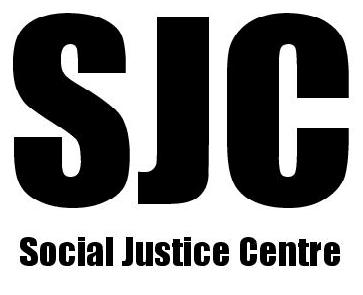By Jeff Shantz
On March 2, 2019, the Simon Fraser University (SFU) History Department held its annual #sfuhistreads 2019 discussion on the recently released political memoir Algeria, Third World Capital (Verso, 2018)by Elaine Mokhtefi who worked with the Black Panther Party in Algeria. The panel undertook a discussion of the meaning of history, radical spaces, and revolutionary times. In doing so, they pursue questions of how the earlier uprisings of the 1960s and 1970s relate to today’s movements (especially Black Lives Matter and Idle No More and Indigenous resistance) and popular uprisings like the Arab Spring. They ask what the militant struggles of the 1960s and 1970s, from the Algerian struggle to the internationalism of the Black Panther Party, have to tell us about resistance and revolution today.
The panel consisted of: Muriam Haleh Davis (University of California-Santa Cruz); Karen Ferguson (SFU); Amal Ghazal (SFU); and Adam Rudder (Hogan’s Alley Society). What follows are themes and issues condensed from the broader conversations of the panellists and moderator.
What is History?
This being a History Department event, first question addressed by the panel was “What is History?” How can we think of Elaine Mokhtefi as a historian? First, the book I an intimate history—a memoir. It is a first person account from a participant. And its author is not a professional historian, she is a journalist. She compares, as we can, her memories to those of Black Panther Party members Eldridge and Kathleen Cleaver and other revolutionary figures who appear in the book.
In terms of Algerian nationalism, for example, Mokhtefi’s view is very particular. What she emphasizes is not what historians might emphasize. The book is more about the Black Panther Party than about Algeria.
The book does clear up some questions about how history has assessed the period and its actions. The panelists agree that the book could connect differently at various points with academics or non-academics.
Mokhtefi too occupies multiple positionalities. She was a student, a translator, a painter, a jewelry maker, and a militant. She is Jewish. A white American. She is an outsider to both Algeria and to the Black Panther Party. Her perspective connects gender, colonialism, and power in unique ways framed by her multiple positionalities. She struggles with questions of being a white Jewish woman and the need to assert her solidarity with the struggles of people of color. She did seem conscious of moments for using white privilege in places where it could open access.
It is suggested that Mokhtefi comes from a pre-Cold War generation of social democratic internationalists. She saw herself as a citizen of the world in solidarity with the global working class. And she is positioned within a specific moment of post-colonial revolutionism. This is much different than the present period. We cannot replicate it.
Being Jewish in the Algerian context meant something different than being Jewish in the United States. She stresses that she did not experience anti-Semitism among Algerians. Notably, Mokhtefi only emphasizes her Jewish identity in the Postscript, not throughout the text.
This is a personal politics. The account details relationships and affairs. She is clear to assert as well that there was no sexual dynamic between her and Eldridge Cleaver. There are moral non-judgements throughout the text. For Mokhtefi, state violence supercedes the failings of individual Black Panther Party members. It is viewed as more significant, in scale, impact, and causality than misogyny or interpersonal violence.
Radical Spaces
The radical spaces Mokhtefi experienced and explores in reflection are many, from the United States to Africa to Europe: Oakland; the Black Panther Party headquarters; Black Panther Party sites in Algiers; the Black Panther News Service in Algiers; the Afro-American Center in Algiers. They range from the local and intimate to transnational spaces and movements. And there are misunderstandings on all three sides about what revolution means.
An important and overlooked aspects of struggles is the logistics of global resistance—what I have termed infrastructures of resistance. The book highlights communications and travel networks. Chinese and Cuban doctors in Algiers, Safe countries and routes for Panthers to travel. Panelists were struck to reflect on how much militants were very connected well before the internet. There was, in fact, lots of movement and extensive travel. This is a fact that is often forgotten or obscured by contemporary assumptions about “unwired” politics in the present period of social media.
Revolutionary Times
A key question becomes “What does it mean to read this history now?” What is the inspiration for contemporary movements and struggles? Today so many groups and struggles are connecting and learning from each other across space and setting. It is important to point out that there were mass uprisings in Algeria even as the SFU discussion was happening. The Arab Spring uprisings show the need to read things with caution.
People are really interested in the 1960s and 1970s. But there feel like disconnections with today. There is a nostalgia and melancholy in the book and in other account of the period.
The panelists suggest that we seem to have learned, in fact, very little from the time depicted in Mokhtefi’s book. How have the conversations progressed? The panelists suggest that identity politics cover over some meaningful complexities within communities today. When is solidarity not possible? Why not? The book offers a warning about how the movements then did not “get” each other.
When she gets back to the US, Mokhtefi realizes that the moment for the Black Panther Party is over.
Today the political imagination seems to be dominated by pragmatism—an effect of decades of neoliberal “no alternative-ism.” There is a limited sense of the possible in political discourse. But there is a real desire today for utopias, for a utopian imagination at least.
Algiers, Third World Capital offers some compelling insights into all of these concerns. And does indeed stoke the radical imagination.


